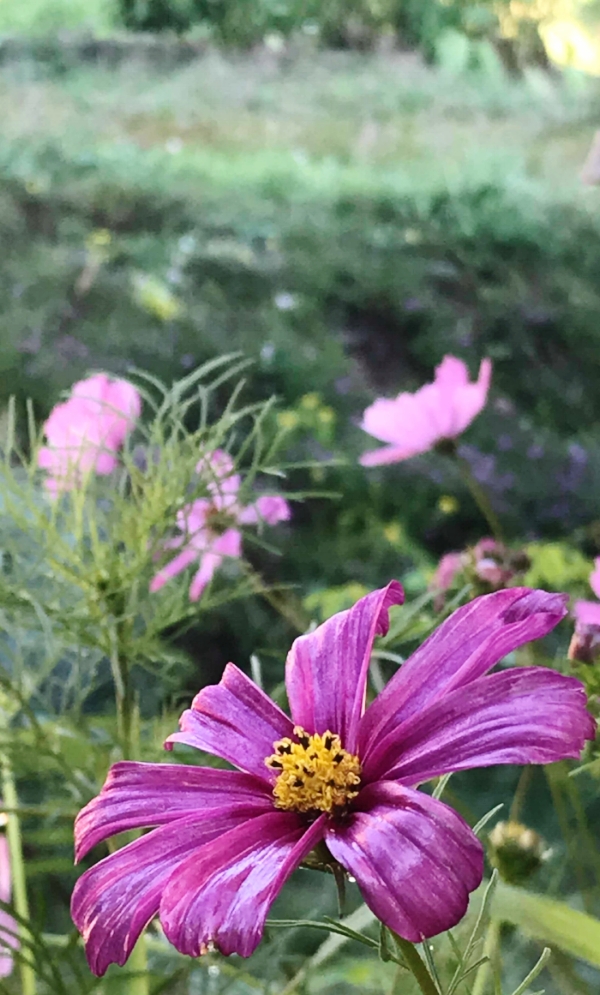Coronavirus, lungwort and plant sensitivity to human needs
/There is an old herbalist theory, originating from multiple indigenous-wisdom traditions, that medicinal plants not only wish to offer their gifts to help people but can go so far as to provide a particularly large harvest of needed plants in times of widespread sickness.
A few years back, my lemon balm plants, which are generally pretty wimpy, went berserk and produced a bumper crop. I never could figure out what I had done differently that year or how the weather could have been different. But that winter I had a large supply of lemon balm tincture and lemon balm salve.
Photo by Arie Farnam
I gave away every one of the lemon balm salves that year. Our local pediatrician swears that they’re as good as Acyklovir for cold sores. I don’t think we actually had more cold sores that year, but there were a lot of viral infections that led to strep throat in our circle. That is the other thing that lemon balm is specifically indicated for.
I used to get strep every time I got the flu, but I don't anymore—as long as I take lemon balm tincture preventatively. That year I was giving out lemon balm tincture to fight off sore throats left and right.
I’m not one-hundred percent convinced that plants somehow know our health needs and provide extra harvest in response (in advance), but sometimes there is a mysteriously big crop of some specific herb and I pay attention, harvest and store what is offered. It usually ends up being needed.
This year, the bumper crop is lungwort.
It’s a humble little plant and I’ve never made an effort to grow it. It just volunteered in my rock garden a few years back. Since then, it has put out a few of its vaguely lung-shaped leaves with the odd gray spots that look like it is moldy or diseased, even when it isn’t. It is one of the earliest flowers here, before the dandelions. The flowers are small flutes of cornflower blue or lavender color.
People used to use lungwort for respiratory illnesses, especially debilitating and chronic diseases. Medieval scientists believed that a medicinal plant would in some way resemble the part of the body it is meant to heal. So lungwort was considered to be an obvious choice for respiratory illness.
Modern medical trials largely have not born this out in the case of lungwort. It doesn’t make the best herbal cough syrup or tea or inhalant. It does seem to have a mild, pleasant effect on a cough, little more, and there are heavier-hitters among the respiratory herbs.
Still I have to wonder. I’ve never seen so much lungwort as I see this year. For weeks almost nothing else has been blooming in my garden, but a profusion of lavender and light blue flowers of lungwort are popping up everywhere, as if this normally shy little plant that used to hide by the stone wall of the sauna, had suddenly decided to take over
I wonder if any other herbalists have noticed this. Am I the only one with a sudden plenty of lungwort?
There isn’t much else to gather this time of year, so I’m picking the lungwort flowers and drying them, just in case. If this lung-attacking novel coronavirus does come our way, I will try whatever I’ve got. My family have all had a bit of lungwort in their tea over the years, so i know no one is allergic to it.
I’ll use other herbs and pharmaceuticals if it comes down to that. But I will be at least try lungwort tea, just in case the traditional wisdom is right this time. This is a new virus after all. And sometimes a mild, unassuming herb without clear antibiotic properties will turn out to smack one particular type of bacteria or virus right where it counts.
Lemon balm isn’t generally antiviral or antibiotic, for example. It only destroys the herpes virus and streptococci bacteria. No one knows why, only that it is very effective. The same thing could happen again and the only way we’ll know is if herbalists pay attention.




















